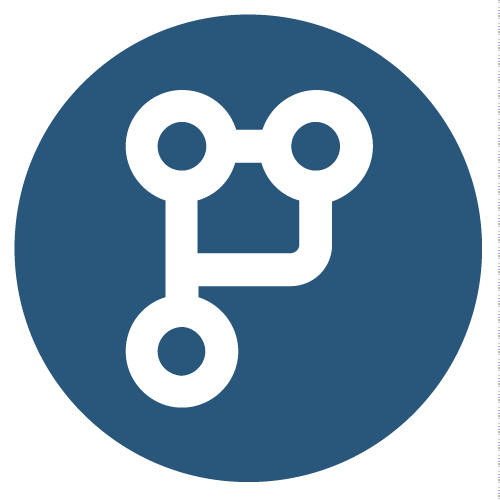
In the realm of software development, the importance of clean, understandable code cannot be overstated. Yet, equally crucial is the quality of the documentation accompanying that code. Documentation serves as the roadmap for current and future developers, explaining how and why code works. A critical, often overlooked aspect of high-quality documentation is correct spelling. Spelling errors can reduce the perceived professionalism and reliability of software projects. Fortunately, spelling linters come to the rescue, offering automated tools to check and correct spelling errors in your project’s documentation and even within code comments.
The Role of Spelling Linters in Software Projects
Spelling linters are specialized tools that scan text in code files, including comments and documentation, to identify spelling mistakes. They can be configured to ignore code snippets and focus solely on the human-readable parts of the file. The value of using spelling linters in software projects is threefold:
- Professionalism and Clarity: Correct spelling enhances the professionalism of your project and ensures clear communication among team members and to end users.
- Customizability: Many spelling linters allow customization of the dictionary, enabling the addition of technical jargon, acronyms, and project-specific terms.
- Integration and Automation: Spelling linters can be integrated into continuous integration (CI) pipelines, ensuring that spelling errors are caught early and consistently.
Popular Spelling Linters
Several spelling linters have gained popularity among developers for their ease of use and integration capabilities:
cSpell
cSpell is a powerful spell checker designed to integrate seamlessly with Visual Studio Code (VS Code), one of the most widely used Integrated Development Environments (IDEs). With its extensive language support and sophisticated customization options, cSpell goes beyond simple spell checking to ensure that your project’s documentation, comments, and even code are clear, professional, and error-free.
- Comprehensive Language Support: cSpell boasts an impressive array of supported languages, making it an ideal tool for global teams and projects targeting international markets. This extensive language support ensures that developers can apply spell checking to projects in their native language, reducing errors and improving readability.
- Seamless VS Code Integration: As a VS Code extension, cSpell offers a frictionless experience for developers who rely on this IDE. The integration provides real-time spell check feedback directly in the editor, highlighting misspelled words in comments, Markdown files, and plaintext documentation. This immediate feedback loop enables developers to correct errors on the fly, enhancing productivity and maintaining focus on development tasks.
- Configurability and Customization: The true power of cSpell lies in its configurability. Through the
cSpell.jsonconfiguration file, developers can tailor the spell checker to meet the unique needs of their project. This includes:- Defining Custom Dictionaries: Add domain-specific terminology, acronyms, and project-related jargon to ensure they are not flagged as errors.
- Ignore Patterns: Specify sections of files (such as code blocks) to ignore, focusing the spell check on comments and documentation where clarity is most critical.
- Language Settings: Adjust settings for different languages used within the project, accommodating multi-lingual development environments.
Integrating cSpell into your development workflow is straightforward. The following commands illustrate the basic setup process for a global installation and running cSpell on your project:
npm install --global cspell
cspell .
If you’re looking to use cSpell as a VS Code extension, the extension Code Spell Checker by Street Side Software is a third-party extension that uses cSpell internally. For more information on configuration, check out the official documentation here.
markdown-spellcheck
In the modern day, Markdown files (.md) serve as the backbone for documentation, READMEs, and wikis. These files, due to their textual nature, are prone to spelling errors that can undermine the professionalism of a project. Enter markdown-spellcheck, a specialized tool designed to elevate the quality of Markdown content by scrutinizing it for spelling mistakes. This tool’s precision and ease of use make it an indispensable asset for projects where clear, error-free documentation is a priority.
- Comprehensive Spell Checking: markdown-spellcheck stands out for its commitment to the Markdown format, offering a level of spell checking that generic tools can’t match. It understands the syntax of Markdown, allowing it to effectively ignore code blocks and focus solely on the textual content. This means that even embedded code snippets, which are common in software documentation for examples or tutorials, won’t falsely trigger spelling errors.
- Interactive and Non-Interactive Modes: One of the key features of markdown-spellcheck is its interactive mode, which prompts the user to review each spelling error individually. This mode not only allows for the correction of errors but also offers the option to ignore mistakes or add words to the dictionary, tailoring the tool to the specific lexicon of a project. For automated workflows, a non-interactive mode can scan files and report errors without user intervention, perfect for integrating into continuous integration (CI) pipelines.
Getting started with markdown-spellcheck is straightforward:
npm install --global markdown-spellcheck
mdspell "**/*.md" --report
For interactive spell checking, which is particularly useful during the documentation drafting phase, remove the --report flag. This will enable the tool to walk you through each potential spelling error, giving you the choice to fix it immediately, ignore it, or add it to the project’s dictionary.
Spellcheck GitHub Action
The Spellcheck GitHub Action represents a leap forward in maintaining the highest quality standards for documentation in GitHub-hosted projects. By seamlessly integrating spelling checks into your GitHub Actions workflows, it automates the vetting process for every commit or pull request, ensuring that your project’s documentation is not only accurate but also professionally polished.
Key Features and Benefits:
- Automated Spell Checking: Once set up, the Spellcheck GitHub Action runs automatically, checking the spelling across all your project’s documentation. This automation ensures consistent quality without manual intervention, making it easier to maintain high standards even in fast-paced development environments.
- Custom Dictionary Support: Whether your project involves specific technical jargon, brand names, or acronyms, you can ensure they’re not mistakenly flagged as errors.
- Flexible Configuration: The ability to configure the action to ignore specific files or directories is particularly useful. This means you can focus the spell checking on the parts of your project that benefit most, such as README files, user guides, and other important documentation, while excluding third-party directories or files not relevant to the spell check process.
Integrating this action into your project is straightforward. Begin by creating a new file in your repository under .github/workflows/spellcheck.yml. This YAML file will define your spell checking workflow. Here’s a simple example to get you started:
name: Spell Check
on: [push, pull_request]
jobs:
spellcheck:
runs-on: ubuntu-latest
steps:
- uses: actions/checkout@v4
- name: Run spellcheck
uses: rojopolis/spellcheck-github-actions@v0.36.0
This configuration outlines a workflow that triggers on push and pull request events, checks out the current code, and then runs the spell checking action.
Best Practices for Configuration:
- Use A Custom Dictionary: As your project evolves, so too will the language it uses. Create your own custom dictionary and keep it up-to-date to minimize false positives and ensure new terminology is recognized.
- Refine Ignore Patterns: Tailor the ignore patterns to your project’s structure. This might mean excluding auto-generated documentation or third-party content that doesn’t benefit from spell checking.
- Review Action Outputs: Initially, you may discover numerous spelling errors or false positives. Review the action’s output carefully to refine your dictionary and configuration for better accuracy over time.
Best Practices
- Regularly Update Your Dictionary: Regularly updating your dictionary ensures that the linter remains effective.
- Incorporate into CI/CD Pipelines: Automated spell checking as part of your CI/CD pipeline ensures that documentation remains error-free as the project develops.
- Educate Your Team: Ensure all team members are aware of and know how to use the spelling linters. This promotes a culture of quality and consistency in documentation.
Conclusion
In the world of software development, the devil is in the details, and spelling is a detail that should not be overlooked. Spelling linters offer an automated, efficient way to ensure the professionalism and clarity of your project’s documentation. By choosing the right tool, customizing it to fit your project, and integrating it into your development workflow, you can maintain high-quality documentation that reflects well on your project and facilitates effective communication. Whether you’re a solo developer or part of a large team, spelling linters are an indispensable tool in your software development arsenal.
